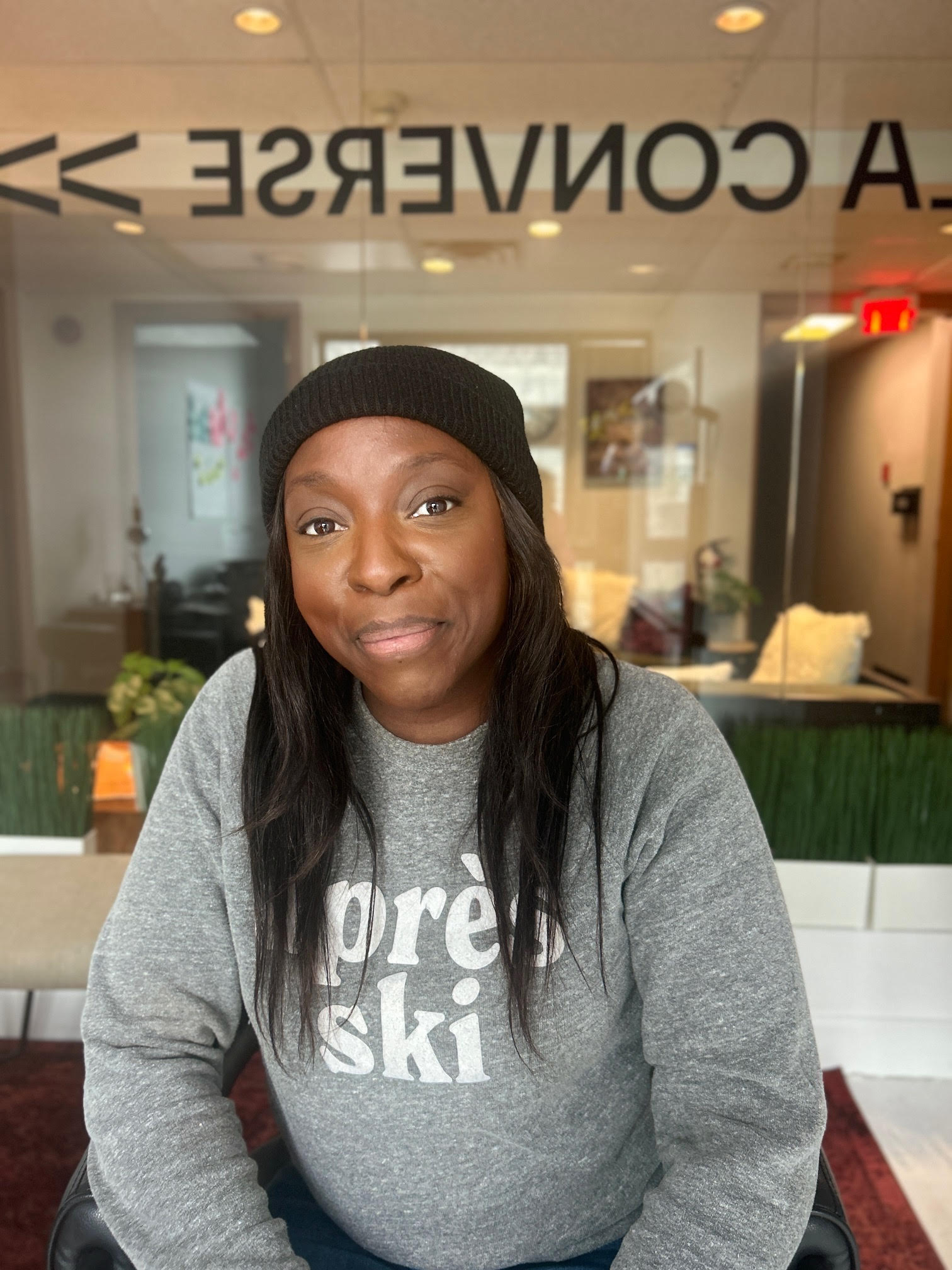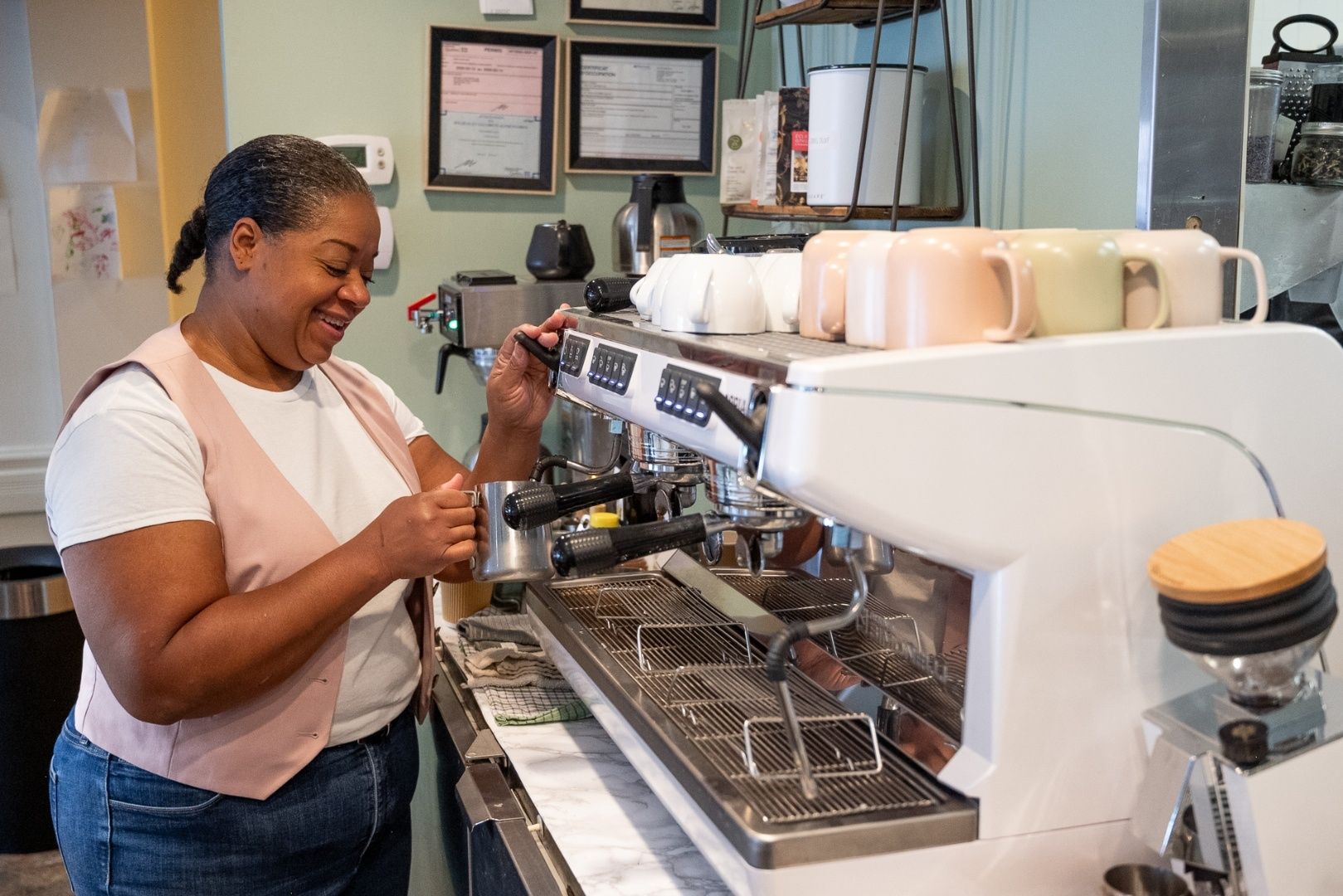Racialized youth too often face a glass ceiling. However, more and more role models from minority communities, especially in high-level sports, are breaking barriers and showing that a future full of opportunities is possible. This is what the Mise au Jeu event, organized by Export Support, aimed to show young people. Sport can be a starting point and not an end in itself, and there are many other prospects to consider.
Despite the rain pouring down on Montreal on June 27, many families and young people braved the bad weather and went to the Centre Culturel Marocain Dar Al Maghrib, where the meeting was held. The theme of the evening revolved around learning about volunteering opportunities, but above all, listening to and exchanging with two professional athletes from the Maghrebi community.
.jpg)
A Space for Listening and Transmission
Inside, mint tea and sweets were served while the buzz of discussions filled the space, awaiting the arrival of Mehdi Abdesmad, aformer NFL player, and Zacharie Belamri, university soccer player and community activist.
Once on stage, the two figures shared their journeys, their failures and victories, encouraging young people to believe in themselves and to build multiple plans for the future.
"I lost my father in secondary five. I had two choices in life: either I followed the wrong path, or I tried to go down the right path, working towards my studies, then football. And that's what I did," shares Abdesmad.
While Quebecers who reach the NFL are rare, Mehdi Abdesmad had a colourful career despite the obstacles. According to him, sport is a true school of life, teaching discipline, self-transcendence, but above all, the ability to reinvent oneself. He says that is precisely what he did.
.jpg)
Trained at the Cégep du Vieux-Montréal, he distinguished himself at Boston College before signing with the Tennessee Titans in 2016. After a stint with the Buccaneers in Florida and an early retirement at 26 for health reasons, he then worked for Ubisoft and is now a real estate broker. "If you are able to learn in your sports career, you will be able to apply it elsewhere. You will succeed," he recounts.
One of the activities he is most proud of is mentoring young people. "The most important thing for me is to give back to the youth what I didn't have: a mentor. Even if I help only one young person, that's what matters," explains the former Tunisian-born player, with an everlasting smile.
"Sport isn't for life," Abdesmad reminds us. He emphasizes the importance of full involvement, but also keeping an open mind about other possibilities. Belamri, still in studying at the Université de Montréal, and a Carabins player, also insists on the importance of having an alternative path if the first one fails. Because while sport can be a stepping stone, it's not enough to build a sustainable future without a project on the side.
Don't Be Afraid of Failure
For Belamri, failure is not an end, but a necessary step towards success. "Once you have a lot of failures, you understand that it's normal," he explains.
The best players are often those who experienced the most failures early in their careers, he recalls. "Nobody succeeds at everything all at once. The more mistakes you make, the more you learn. That's when you can draw the most lessons."
These words resonated with several young people, including Mohamed, an attendee of the event.
For him, the Mise au Jeu event came at just the right time. Like many young sports enthusiasts, he was at a crossroads, torn between his dreams and the doubts that accumulate over time. "I was in a period of doubt. I was thinking of quitting."
Listening to the Abdesmad and Belamri's stories, he says he felt "a second wind." It was the sincerity of their words, their clear-sightedness in the face of failure, their ability to bounce back that touched him. "Zacharie said it's never too late. You can succeed at any age."
"It really motivated me." The teenager left with Belamri's phone number, so he could mentor him as he also aspires to be a soccer player. Encouraged by the words of the two athletes, he explains that he is aware that "life is not a Disney movie."
For parents like Sarah, this meeting represented much more than a simple listening session: it was a precious opportunity to support their children in their personal development. She emphasizes the importance of this type of meeting because it is sometimes difficult for parents to convey certain messages to their children.
"It pleased me because many of their comments, their feedback, their observations. These are things we say, we repeat. But here, the speakers said it in a way that perhaps touched them more, convinced them more," she explains.
Her 13-year-old son, Hamza, indicates that this evening helped him get an idea of the basics for improving and progressing.
"I know that if I apply what they say, there's a chance I'll do better too," he specifies. "I really liked when they talked about techniques to achieve our goals. For example, setting small goals step by step to progress in the short, medium, and long term."
Inspired, Hamza is already considering getting more involved in sports and community associations. "I'd like to be like them one day, have everyone listen to me, and give advice on what I've been through in my life."
Another young person, Bediss, tells us that sport is not only a field for personal performance but a future profession, a lever for transmission: "I would like to become a football or soccer teacher." Behind this ambition is the desire to share his learnings, to guide others in turn, to have an impact on future generations. As if he had already internalized the fundamental message of the evening: receiving is good, and giving back is better.
Export Support's mission
Export Support, a co-organizer of the event, has been doing in-depth work for several years to provide equitable access to education. Its mission is structured around three pillars: distributing school supplies at the end of the school year to combat waste and lighten the financial burden on families.
It all started from a simple observation: at the end of each school year, in many schools, still-usable material ends up in the trash when students empty their lockers. To remedy this, the organization installs collection bins in partner schools. Students deposit their barely used notebooks, still good pencils, kits, bags... Everything is sorted, redistributed, and recycled to meet the needs of communities in Greater Montreal, Morocco, and Haiti.
.jpg)
Inspired by Export Support's VP international Selma Rehimini's school assignment, the initiative came to fruition thanks to the commitment of several students. Their first mission was to ship a container full of supplies to Morocco. "It's a homework that became reality," summarizes Rehimini. Her advice to young people is to pick a cause you are passionate about, because passion is what drives a small project to become a sustainable human venture.
Sarah saw her children leave with a renewed motivation and a desire to get more involved, particularly through volunteering or other meaningful activities. "With the résumé exercise, my children realized they didn't have much to put on it. That pushes them to consider volunteering or other commitments more seriously, to avoid having an empty résumé. For me, the objective has been achieved with this meeting," concludes the mother, visibly delighted.




.jpg)
.jpg)



.jpg)
%20(1)%20(1).jpg)